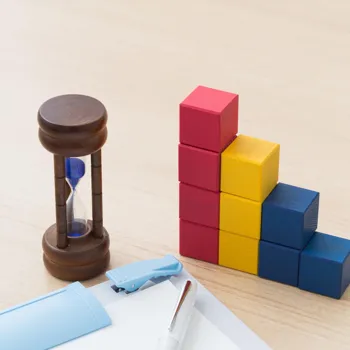Unleash Your Learning Potential with Science-Backed Techniques! Dive into 10 strategies to boost retention & comprehension
In today's fast-paced world, learning is a lifelong journey. Whether you are a student
preparing for exams, a professional seeking to upskill, or simply someone with a thirst for knowledge, understanding how to learn effectively is crucial. Forget rote memorization and late-night cramming sessions.
This article unveils ten science-backed techniques that can help you unlock your learning potential and improve retention. These methods are not just about studying harder; they're about studying smarter. Implement these strategies and watch your understanding and recall soar!
Spaced repetition boosts memory by reviewing info at intervals
One of the most well-researched and effective learning techniques is spaced repetition. It involves reviewing material at increasing intervals. This forces your brain to actively recall the information, strengthening the memory trace each time. Forget cramming everything into one long session.
Instead, review the material shortly after learning it, then again a few days later, and then again a week or two after that. There are several apps and software programs available that can help you implement spaced repetition effectively.
Active recall boosts retention and highlights knowledge gaps
Another powerful technique is active recall. Instead of passively rereading notes or textbooks, actively try to retrieve the information from memory. This could involve testing yourself with flashcards, answering practice questions, or simply trying to explain the material to someone else.
Active recall forces your brain to work harder, which leads to better retention. It's a fantastic way to identify gaps in your knowledge and focus your studying efforts on the areas where you need the most help.
Try the Feynman Technique, which urges you to teach/explain concepts for better understanding.
Elaborate new info by connecting to what you know
Elaboration is the process of connecting new information to what you already know. When you encounter a new concept, don't just memorize the definition. Instead, try to relate it to your own experiences, examples, and existing knowledge.
This makes the information more meaningful and easier to remember. Ask yourself questions like, "How does this relate to something I've already learned?" or "Can I think of any real-world examples of this concept?". You can also create analogies or metaphors to help you understand complex ideas.
Interleaving subjects improves long-term retention
Interleaving, on the other hand, involves mixing up different subjects or topics during your study sessions. Instead of studying one subject for hours on end, switch between different subjects throughout the day.
This forces your brain to constantly adapt and retrieve information from different areas, which improves long-term retention. For example, you might study math for an hour, then switch to history, then back to math.
Interleaving can feel more challenging than studying one subject at a time, but the benefits for learning are significant.
Practice testing enhances learning through active recall
Practice testing is a remarkably effective way to improve learning. Regularly testing yourself on the material, even before you feel fully prepared, can lead to significant improvements in retention and recall.
Practice tests expose you to the types of questions you might encounter on the actual exam and help you identify your weaknesses. Don't just passively read the answers after taking a practice test. Instead, actively try to understand why you got the question wrong and review the relevant material.
Metacognition: optimize learning by understanding your processes
Metacognition, often described as "thinking about thinking," involves being aware of your own learning processes and strategies. It's about understanding how you learn best and using that knowledge to optimize your study habits.
Ask yourself questions like, "What are my strengths and weaknesses as a learner?" or "What study techniques have worked best for me in the past?". By becoming more aware of your own cognitive processes, you can tailor your learning strategies for maximum effectiveness.
This includes monitoring your comprehension and adapting your approach when you're struggling.
Quality sleep crucial for learning & memory retention. Aim for 7-8 hours nightly
Never underestimate the importance of sleep for learning. When you sleep, your brain consolidates the information you've learned during the day and transfers it to long-term memory. Aim for seven to eight hours of quality sleep each night, especially before and after learning sessions.

Avoid pulling all-nighters before exams, as this can actually hinder your performance. A well-rested brain is a more efficient learning machine. Lack of sleep impairs cognitive function and reduces your ability to focus and retain information.
Learning environment crucial for success, find distraction-free space
Your learning environment also plays a crucial role in your success. Find a quiet, distraction-free space where you can focus without interruptions. Minimize noise, clutter, and other potential distractions. Experiment with different study locations to find what works best for you.

Some people prefer to study in a library, while others find that they learn best at home. The key is to create an environment that is conducive to concentration and learning.
Teaching others solidifies your understanding
Finally, teaching others is one of the most effective ways to solidify your own understanding. When you teach someone else a concept, you have to explain it in your own words, which forces you to think deeply about the material.
This process helps you identify any gaps in your knowledge and reinforces your understanding. You don't have to be a formal teacher to benefit from this technique. Simply explaining a concept to a friend, family member, or study group can be incredibly helpful.
Chunking: Breaking info into manageable parts for better memory
Chunking is the process of breaking down large amounts of information into smaller, more manageable chunks. This makes it easier for your brain to process and remember the information.
For example, instead of trying to memorize a long list of items all at once, break it down into smaller lists of three or four items each. This technique is particularly useful for learning complex topics or memorizing lengthy sequences of information.
Time management method using 25-min focused work sessions
The Pomodoro Technique is a time management method that can help you stay focused and productive during your study sessions. It involves working in focused bursts of 25 minutes, followed by a short break of 5 minutes. After every four "pomodoros," take a longer break of 20-30 minutes.

This technique helps to prevent burnout and maintain concentration by breaking up long study sessions into smaller, more manageable chunks. It also encourages you to prioritize your tasks and stay on schedule.
10 science-backed techniques to enhance learning and achieve goals
By incorporating these ten science-backed techniques into your learning routine, you can unlock your full potential and achieve your academic and professional goals. Remember that learning is a process, and it takes time and effort to develop effective study habits.
Experiment with different techniques to find what works best for you, and don't be afraid to adjust your approach as needed. Happy learning!
AI Generated Content. Glance/InMobi shall have no liability for the content














